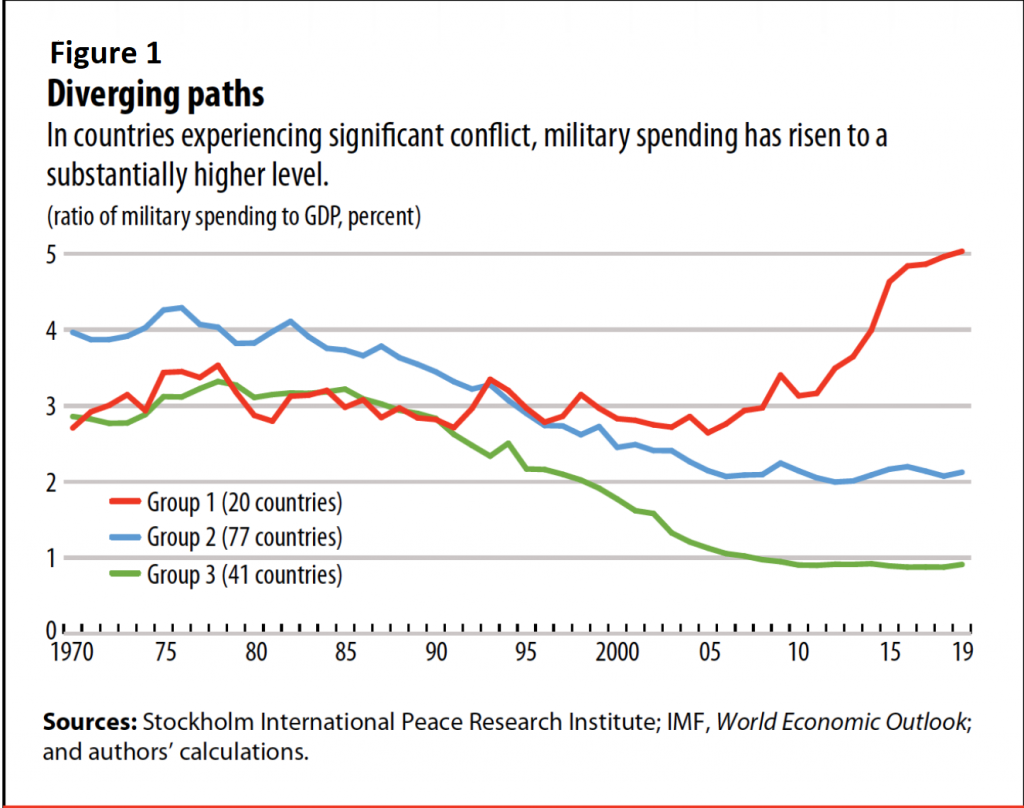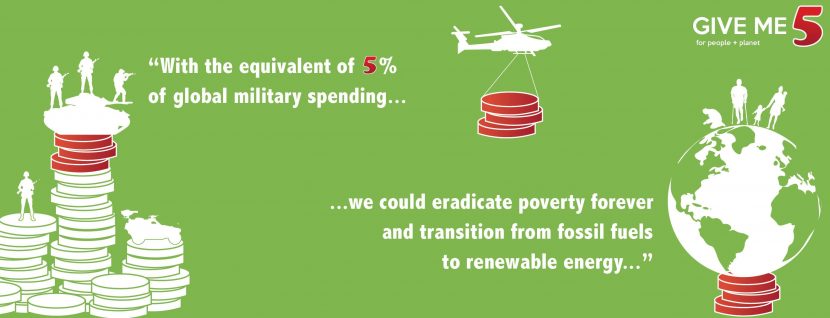We are changing direction this week and trying something new. This week we are talking about theft, but not in the conventional sense. No, we are not talking about the criminal act of stealing. Instead, we are talking about theft in the sense of misplaced opportunity. In his Chance for Peace speech, President Dwight D. Eisenhower quipped “Every gun that is made, every warship launched, every rocket fired signifies, in the final sense, a theft from those who hunger and are not fed, those who are cold and are not clothed. This world in arms is not spending money alone. It is spending the sweat of its laborers, the genius of its scientists, the hopes of its children.” These wise words from the general who helped guide the world through the post-WWII transition help us transition from Health to Wellbeing to Reduced Inequalities.
Eisenhower gave his speech in 1953 but it is all the more relevant today. How nations spend their money says a lot about their priorities and what they value.
A recent analysis by the IMF shows military spending across a group of 77 countries has plateaued and has a significant chance of increasing (Figure 1, IMF 2021). This group, containing China, the United States, and the United Kingdom, total more than 90% of the world’s military spending and represent the top 15 highest military budgets in the world (IMF 2021).

These misplaced priorities accentuate the inequalities we experience today. The advanced economies in this IMF report are blessed with an abundance of resources rarely available to most other nations. Had they reallocated these resources to more fruitful endeavors, perhaps some of the most pressing social issues could be solved.
Take covid for example. The United States has seen the benefits of vaccinating society in the form of a return to normalcy. While the majority of the world has not been lucky enough to create its own vaccine, the IMF found that a mere $50 billion could vaccinate the world to safe levels while delivering adequate testing (IMF 2021). This would reap an estimated $9 trillion globally (IMF 2021). Just think of all the hungry mouths one could feed with this abundance.
This means that only 2.5% of global military spending in 2020 can make the necessary investments to end the covid-19 pandemic. Instead, the world’s vaccination rate is less than 2%, this is outrageous, to say the least. But people are not only dying from the coronavirus but also the economic and social disruption it has created as well, via rising hunger and poverty rates.
A recent report by the Food and Agriculture Organization of the United Nations (FAO) outlined the hurdles of achieving zero world hunger by 2030. In 2020 between 720 million and 811 million people experienced hunger. This is an increase of 928% (a conservative estimate) from the previous year, where 70 million to 161 million people faced hunger. If we are to achieve Reduced Inequalities and truly create a world without poverty, we must first reassess our priorities.
Find out how much your country spends on the Sustainable Development Goals here:
The Sustainable Development Goals aren’t an impossible set of targets that benefits one country. They are something that can benefit and change the whole world. Think of how much we could all flourish as human beings if none of us went hungry, had a roof over our head, and received a quality education. What else could we achieve beyond the Sustainable Development Goals? The possibilities are endless, but none of this is possible unless we all work together. It may feel like there is no end in sight in achieving these goals, but the journey of a thousand miles starts with the first step.
Works Cited
Agarwal, Ruchir, and Gita Gopinath. “A Proposal to End the COVID-19 Pandemic.” IMF, 19 May 2021, www.imf.org/en/Publications/Staff-Discussion-Notes/Issues/2021/05/19/A-Proposal-to-End-the-COVID-19-Pandemic-460263.
Clements, Benedict, et al. “Military Spending in the Post-Pandemic Era – IMF F&D.” International Monetary Fund , 2021, www.imf.org/external/pubs/ft/fandd/2021/06/military-spending-in-the-post-pandemic-era-clements-gupta-khamidova.htm?utm_medium=email&utm_source=govdelivery.
FAO, IFAD, UNICEF, WFP and WHO. 2021. The State of Food Security and Nutrition in the World 2021. Transforming food systems for food security, improved nutrition and affordable healthy diets for all. Rome, FAO. https://doi.org/10.4060/cb4474en


